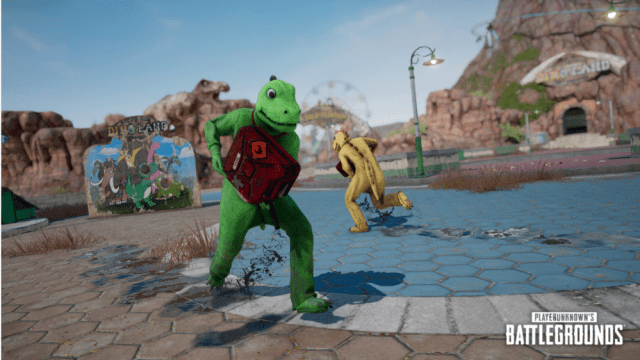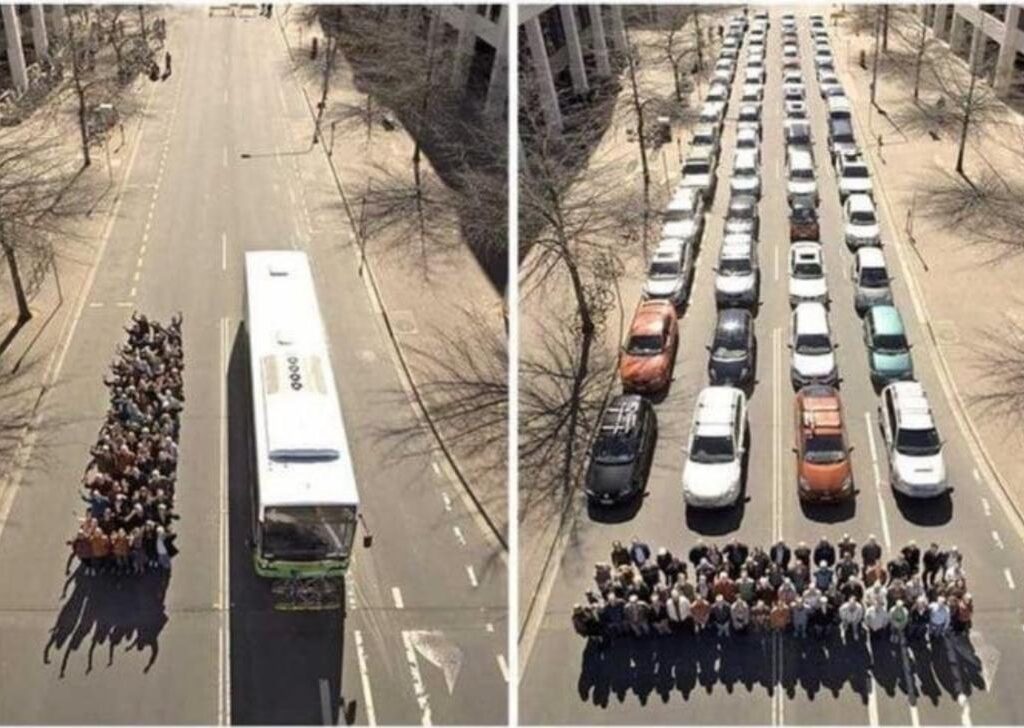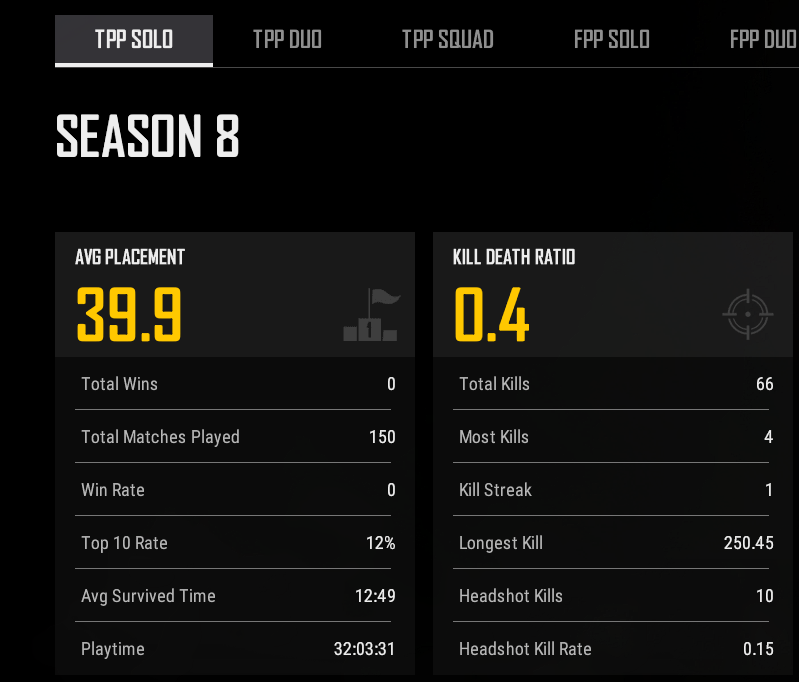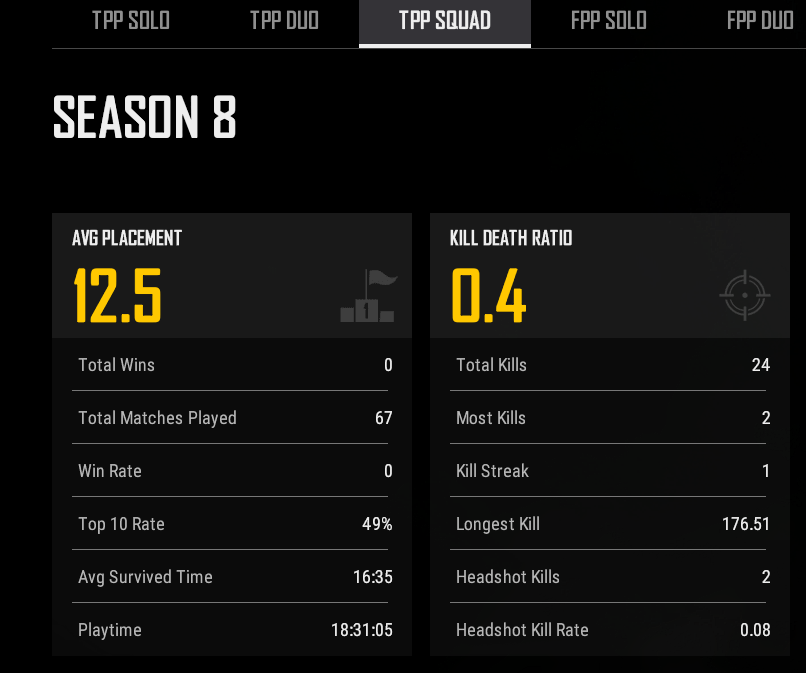Ah, PUBG, the no-frills Battle Royale that gives you the combat without the Minecraft-y elements of Fortnite. Just pure, real world-like bloodshed. Mono e mono. Every man/woman/dinosaur for themselves.

Each match of 100 (or 60) players is set up to be as fair as possible. Like Fortnite, premium powerups are only superficial. You do not bring any guns or special abilities to the party. Everyone is made equally. So, given that, why on earth would anyone choose to play 1 on 3 or 1 on 4, when they could just choose a mode that’s always 1 on 1?
What’s the Difference Between 1 Man Squad and Solo?
While both of these are available single player modes in PUBG, 1 Man Squad is a mode where you are playing alone against squads that can contain up to four people. In solo, you’re out there, on your own, on even footing against only other solo players (and solo bots).
Four Reasons Why To Play 1 Man Squad
1. Improved Board Spacing
When trying to optimize survival time in a PUBG match, one of your primary concerns is to stay to relatively de-populated areas. If you want to up your kill count or finish a bunch of missions, you may choose to enter the map in a congested city — but if your goal is strictly survival and ranking, it’s probably best to stay remote.
The dynamics of the board are wildly different between Solo and 1 Man Squad. In Solo, everyone is trying to carve our their own little survival space, so all of these individual agents spread throughout the board. Especially as the phases move on and space gets constricted, you will inevitably come across someone lurking in a nearby house, bush or hillside.
In Squad, however, players cluster — mostly into groups of 3 or 4. This actually provides a great deal more space to maneuver as a solo player. A team may decide they need a city, or a large cluster of building to obtain enough loot to equip 4 players. That means that remote cabins or warehouses are much less likely to contain someone waiting to snipe you — especially in the early part of the match.
You can think of it in terms of traffic congestion. Take the ubiquitous graphic that follows, showing how much road space people take up in individual cars vs riding collectively in a bus:

If you think of Squads as little team carpools, it becomes easy to visualize how much less congested the PUBG map is when most of the players are clustering into groups of 3 or 4. This means you’re just much less likely to run across a camper hiding in the shower stall of an apartment building you may be looting.
2. Higher Ranking Finishes
This one is just a simple consequence of squad math. If you have 100 players, playing solo, you’ve got to beat out 90 players to reach the top 10. If you are playing in Squad, there are, let’s say 25 to 35 teams, made of up those 100 players. To reach the top 10 of teams (even as a solo) you only have to get to the top 20 to 25 players, on average.
Take a look at my average season finishes in TPP Solo vs TPP 1-Man-Squad. As a note, I am not a good player, at all. But my not-goodness translates to an average placement of 40 in TPP Solo vs an average placement of 12 in TPP 1-Man-Squad. I hit the top 10 half the time in Squad vs 12% in solo.


3. Engagement Predictability
Of course the counterpoint to this piece is, “Why would I want to be taking on groups of 2-4 instead of a bunch of individuals?” While a valid point of view, one reason you might want to take on small groups is because these groups have more predictable behaviors.
Super elite, SWAT-trained strike teams aside, most group behavior is a bit clunky. They are slow to react, there is a slight delay in communicating where enemies are located. They camp in large buildings with enough gear & loot to support everyone. If you’re camping in a building, and the first member of squad comes up your stairwell, you can anticipate his friends following suit. You can predict the next few steps of the engagement. You can, for instance, drop a grenade down the stairwell as soon as you disable the first attacker. You can immediately jump out the window and circle around to flank enemies who’ve just frantically rushed in the front door. Basically, you can train your avatar to be Jason Bourne. And what’s not fun about that?
The point is, there are ways to effectively engage a group — especially if you can anticipate how they will react to a panicked teammate under fire. It’s much harder to predict the outcome of an engagement with 4 lone wolves all shooting at different targets in different directions.
4. Noob Hunting
Here’s a minor perk to playing Squad. Some new players don’t know the difference between Solo and 1-Man-Squad. So, they pick 1-Man-Squad at random and have no idea what they’re getting into. These players are easy fodder — kind of like human-controlled bots. Now, of course you’ll still come across the elite super-sniper solo artist, even in Squad play, but that is usually reserved for the endgame, once you’ve racked up your survival points.
Drivers vs Walkers
On a totally unrelated side note, it turns out that players who prefer to drive actually survive longer (statistically) than players who prefer to walk. This is according to Meta Clustering and Player Behavior in PUBG.
“Drivers tend to survive longer in the game. This is because they can evade enemies faster, explore areas quickly and stay within the playable area of the map more. This results in the fact that they finish higher than walkers. In all other aspects of combat”
Caveat — Less Chicken Dinners
I think the biggest drawback of this playstyle choice is that winner-winner chicken dinners are harder to come by. Once you get to the top-7 or top-5 in a squad match, you’re likely to be 1 on 3 or 1 on 4 against some very talented players. And that gives you long odds to knock out each and every one. So, if you’re only looking for that #1 spot, this strategy may not be for you. However, if you’re trying to get mission xp, build up your loot cache, or simply sniff the top 10 — 1-Man-Squad is your ticket.



